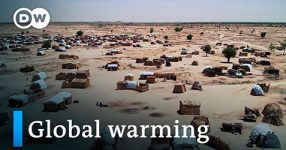In an era marked by climate change and shifting resource dynamics, the keyword “The Last Resources” embodies the essence of the looming global water crisis. Once a seemingly limitless commodity, water is now becoming a scarce resource, and it’s time to delve into the realities of this pressing issue.
The Evolving Notion of Abundant Water
Throughout history, water has flowed like a lifeline, a resource so abundant that it was taken for granted. Our planet boasts vast oceans and mighty rivers, giving the illusion of endless water. However, the harsh truth lies in the scarcity of potable and safe drinking water.
As our world grapples with diminishing water supplies, the landscape of ownership and territory disputes takes a central stage. The Indus River System conflict between Pakistan and India serves as a historical example, necessitating World Bank intervention in 1960 to establish equitable resource rights. Yet, with global water levels receding, the dynamics of international relationships are poised for change.
Industries and Their Water Footprints
The film “The Last Resources,” directed by Daniel Harrich, highlights the water-intensive sectors that drive this crisis. Tech giants like Microsoft and others consume copious amounts of water during the production of computer components and server cooling. Simultaneously, the world’s wealthiest individuals are investing in water resources, either through territorial acquisitions or investments in water-focused companies.
The food service industry, typified by Coca-Cola, compounds the problem by bottling already scarce water for commercial gain. Residents in these areas are compelled to purchase their own water, a resource that should, in theory, be freely accessible.
Agriculture, a cornerstone of global food production, is another significant water consumer. Cattle farming, in particular, demands substantial water resources, leading to scenarios like the abandonment of cattle in drought-stricken Western Canada and the grim rise in farmer suicides in India. Groundwater depletion in India is the fastest worldwide, casting a somber light on the situation.
Challenging Questions and Conflict Resolution
The contemporary dialogue surrounding water revolves around fundamental questions. Who possesses the rights to Earth’s most precious resource? How should water be equitably distributed among individuals, tech companies, farmers, and government entities? As the demand for water continues to soar, these queries can incite disputes, battles, and, in extreme cases, even warfare.
Adaptation to changing circumstances is non-negotiable, necessitating a shift towards more responsible consumption. Inevitably, we must embrace the reality that water, once thought inexhaustible, is no longer an endless bounty.
Climate Change and the Global Water Crisis
Climate change exacerbates the situation as rising temperatures contribute to heightened water consumption. The climate crisis has exacerbated drought conditions worldwide, jeopardizing not only human existence but also entire ecosystems. In this backdrop, livestock farmers are grappling with dwindling water resources. India’s agricultural heartland is struggling to irrigate fields, leading to large-scale migrations and human displacement.
The pressing question remains: who has the right to own water? Are we on the precipice of more significant conflicts and potential wars over this diminishing resource? The specter of a world without water looms large, underscoring the urgency to address this crisis before it becomes an irreversible reality.
In conclusion, “The Last Resources” encapsulates a world grappling with water scarcity, a crisis driven by climate change, and the insatiable demand for water across various industries. The narrative encompasses ownership disputes, questions about equitable distribution, and the imperative of adaptation. As the global community faces this critical issue, the keyword “The Last Resources” epitomizes the urgency of securing our planet’s most precious and dwindling resource.












